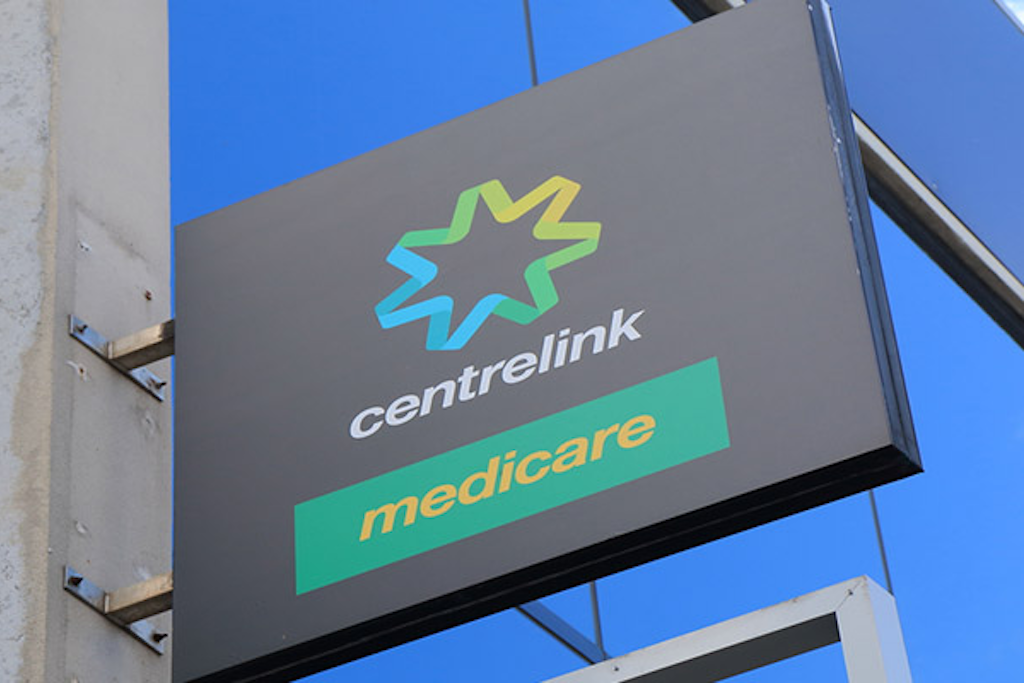The Robodebt Debacle Proves The Coalition Can’t Be Trusted With Our Money
The Coalition are the equivalent of a CEO who doesn't know how to open a PDF.

Word on the etymological street is that debt and death skipped down the halls of capitalist history together. Sixteenth century English scholars, clad in ruffles and long shoes (toes were longer and thinner then), decided that det (meaning anything owed to another) was too close in spelling to deth (meaning the losing of one’s life) so they chucked in a ‘b’. Voila! No more mistaking the grim reaper with being tethered to the mercy of the state via monies owed.
Much like the letter ‘b’ in ‘debt’, the Coalition’s robodebt scheme is entirely arbitrary and designed to be difficult on purpose. The algorithm at the centre of the scheme(/borderline scam) matches Centrelink payment dates and declarations with data from the Australian Tax Office. If the bot finds a discrepancy, an ex-welfare recipient is issued with a debt notice.
It makes complete sense that the architects of the robodebt bot are the Liberal National Party — the political equivalent of a CEO who can’t open a PDF.
In the case of the robodebt sham, debt recipients are strapped to a timer: either pay up or prove the debt isn’t legitimate. If you don’t supply payslips and evidence related to alleged overpayments your debt is sold to a private collector and will accrue compound interest.
My Robodebt Story
And that’s what happened to me. I supplied Centrelink with an unholy amount of bank statements and payslips dating back years. I was told the ATO had supplied data showing I had commenced working for the Department of Education (as a primary school teacher) on 1 July 2014 but continued to claim payments up until 18 August. When I explained that 1 July is when my teaching approval was processed and that I did not actually start work until 18 August they asked me to supply payslips. Upon requesting payslips from the DOE, the consultant claimed they had received calls from “thousands of teachers” for robodebt reasons. If you have a go, you get a fair go — right? Unfortunately the DOE could not supply payslips for the time in which I was not working and as such the alleged debt remained.
After two years of escalating phone calls and ordering review after review I received a text message from a private debt(/death) collector while at work. The text demanded I call them to fix a debt sold to them by the DHS. The DHS had also sold my personal details, including tax file number, date of birth, address, and phone number to the private debt collector.
The debt collector suggested I take legal action against Centrelink. I called Centrelink and finally they pushed the issue to a whole new level of escalation. For two months I would receive ‘courtesy calls’ from a DHS consultant telling me they were going through my appeal with a “fine tooth comb” but it was taking a while because they had to use a number of “old calculations”.
Eventually my alleged debt was halved. The remaining amount is still contestable, but I’m tired.
“A year after receiving the robodebt I made plans to take my own life.”
A year after receiving the robodebt I made plans to take my own life. The robodebt eviscerated every last drop of resilience I had left. What was the point of working everyday as a primary school teacher, getting hit with HECS fees every fortnight, and fighting Centrelink every second day? And yet “a job is the best form of welfare” according to the Liberal National Party. I’m sure it is if you’re a worker who has never had to be on welfare.
That is the number of people who died after receiving a robodebt notice from Centrelink between July 2016 and October 2018. Four hundred and twenty-nine notice robodebt recipients who lost their lives were aged under 35.
It needs to be said that the only reason the DHS collects these statistics is so that the Coalition can write-off “irrecoverable” debts due to death when crunching the numbers for their “surplus” budget.
Can The Coalition Be Trusted With Our Money?
As per the Coalition’s own budget measures, $575 million of taxpayers’ money will have been spent by 30 June. As of February this year, The Guardian reported that the government had already spent $400 million on enforcing robodebts since they were rolled out, and only recovered $500 million. So either the robodebt budget is going to miraculously break even next month or be in the red. For all they prattle on about being the best to handle the country’s finances, this is an immense economic and social failure by the LNP. If that isn’t piss poor planning and management then I don’t know what is.
204000Centrelink’s erasure of a Melbourne worker’s robodebt last week is significant. After Legal Aid Victoria launched a court challenge against the DHS, they swiftly clicked their fingers and wiped the robodebt like some kind of Centrelink Infinity Gauntlet. It is within reason to read the implications of this outcome as indicative of the Coalition intending to rip-off welfare recipients.
I’m not sure who in the LNP needs to hear this but stealing is when you take something that does not belong to you without consent, often by intimidation.
There are many ways of ‘legally stealing’ and ‘legally intimidating’ vulnerable people and the LNP knows this. Their botched robodebt scheme exists as way of making the most vulnerable pay for critical line items in their surplus budget.
If a surplus is not reached it is because the unemployed, underemployed, and workers refuse to be intimidated into paying debts(/deaths) they do not owe. The Liberal National Party has failed to robodebt the pain away of their piss poor performance.
Dan Hogan is a writer and teacher from San Remo. They tweet@packetofchips
